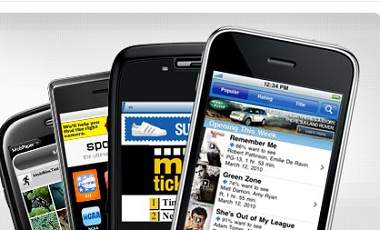How secure is your privacy? If you own a smartphone, chances are you don’t have a whole lot to begin with. In fact, smartphone owners are getting used to the idea that this concept of “privacy” doesn’t even really exist anymore.
The Wall Street Journal has just posted the results of an investigation into 101 of the most popular smartphone apps for Android and the iPhone. Of them, more than half – 56 to be exact – transmitted personal information without the user ever being aware it was doing so. And 47 of them transmit location data.

Pandora, a popular Internet radio app, sends not only the phone’s unique, traceable identification number, but also its location and even the user’s gender, to the app’s server. Why would an online radio app need this information? For advertisers.
In fact, that’s where the vast majority of shared data goes. It surely makes sense for apps like mobile dating services to share location data. Users will expect that. But in apps that have nothing to do with location-specific features, many may not even realize their phone is sending this information.
The Journal quoted Apple as saying, “We have created strong privacy protections for our customers, especially regarding location-based data. Privacy and trust are vitally important.”
However, the publication’s report says these safeguards can easily be bypassed. It pointed to a Halloween game called Pumpkin Maker, which shares the user’s location data with ad networks. The user is never asked permission to do so, and has no clue the app is sending out that information.
Of the 101 apps in the report, 45 had no privacy policy to speak of. And in every single one, there’s no way to opt-out of sharing your data.
“In the world of mobile, there is no anonymity,” the Journal quoted Mobile Marketing Association member Michael Becker as saying.
The question is, though, whether or not users are outraged over this. The younger generation has all but lost the concept of privacy. People are posting details of where they are 24/7, sharing locations through Foursquare and Facebook, and accepting friend requests from complete strangers who now get to know every personal detail about them.
Personal information is nothing more than a commodity these days. It’s something to buy. And before too long, everyone will probably be just fine with that.






